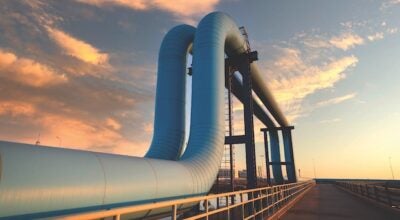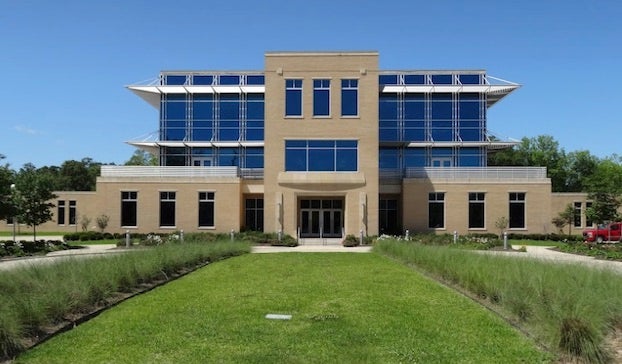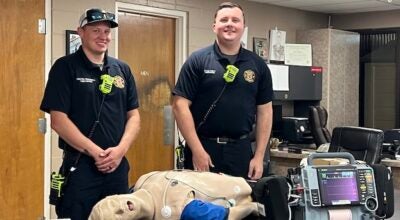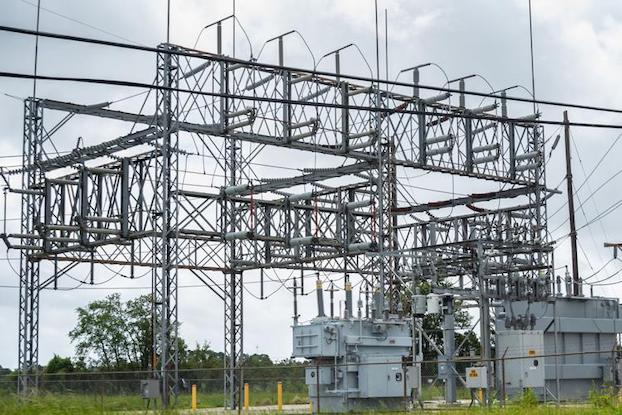Allen Police Jury offers support for carbon dioxide sequestration site
Published 3:44 am Wednesday, April 5, 2023

- Occidental Petroleum plans to drill CO2 sequestration wells and store CO2 in underground storage facilities on a 27,000 acre site in the West Bay Wildlife Management area located between La. 26 and La. 112, northwest of Oberlin. (Special to the American Press)
The Allen Parish Police Jury offered support Monday for the future development of a carbon dioxide sequestration site in the parish, but called for the state to amend a proposed bill to provide the parish with revenue from facilities located on private property.
Occidental Petroleum plans to drill CO2 sequestration wells and store CO2 in underground storage facilities on a 27,000 acre site in the West Bay Wildlife Management area located between La. 26 and La. 112, northwest of Oberlin. The property is being leased from Hancock Forest Management.
The facility is one of several proposed projects for Louisiana, which would allow companies to capture CO2 emissions from area refineries and industrial facilities and sequester it underground to help lower greenhouse emissions.
“We are open to the concept of it coming to the parish with the understanding there may be some funding to go along with it,” Parish Engineer Jacob Dillehay said.
The project is still in the early stages with a lot of work to be done at the state and parish level, Dillehay said.
Police jurors said they also need to further review the safety of the process and the environmental impact.
Dr. Mark E. Zappi, executive director of the Energy Institute of Louisiana and professor of chemical engineering at the University of Louisiana at Lafayette, gave a presentation to the Police Jury describing the process of injecting carbon dioxide from energy companies into a targeted rock formation below the impermeable caprock layer, thus keeping the liquid carbon solution safely away from the drinking water.
About 6,000 miles of CO2 pipelines already exist in the U.S. with fairly good safety records, according to Zappi. About 90 percent of those are used for enhanced oil recovery, he said.
“The Denbury CO2 pipeline is already in our area and is not new,” Zappi said. “It has been there over 20 years.”
The Denbury pipeline maintains nearly 925 miles of CO2 pipelines in Louisiana, Texas and Mississippi.
Carbon dioxide is seen as a greenhouse gas that contributes to global warming by many climate scientists.
The Federal government has allocated massive tax breaks to companies that can demonstrate carbon capture and sequestration.
This tax credit has initiated a modern day “Gold Rush” of companies cashing in on this technology.
While several police jurors expressed concerns for groundwater contamination, Zappi said risks are low due to frequent monitoring and other regulations.
“For carbon capture sequestration projects to be effective storage sites, they must be well-selected, well-designed and operated appropriately,” he said.
Based on his own assessment of risks, Zappi said if projects are done correctly risks are low to medium threats, including pipeline ruptures, seismic activity and groundwater contamination.
Several monitoring wells and strategies are used to ensure containment and ecological protection, he said.
The U.S. has 600 years of storage capacity for CO2, according to Zappi.
Since the proposed facility will be built on private property, the parish will not receive any revenue from the carbon capture projects, an action police jurors hope to change.
Police jurors are asking state legislators to amend a proposed bill to allow parish governments to receive financial benefits from these types of projects even when built on private land.
House Bill 571, authored by Rep. Clay Schexnayder of Gonzales, provides a method for monetary proceeds to be provided to some, but not all parishes, in which CO2 sequestration wells are drilled.
Police Juror H. Creig Vizena realizes the economic impact such projects could have on the parish and the need to have a fair and comparable compensation to local governments.
“I think this would be a great thing for the parish as long as it is safe for the people and we can get some money out of it….they are not talking about pocket change,” Vizena said. “That much money, especially out there where they want to put it in Ward 4 we are the poorest. At one time we were the seventh highest ad valorem taxed ward in the state.
“Any money at all would help us greatly because most of our people are under homestead exemption and don’t pay any ad valorem taxes,” he continued. “We are in a poor parish. It would make some money for Ward 4, the parish, tax assessor, School Board…Everybody would be able to benefit.”
Zappi said carbon capture projects could be a significant asset to economic development in the state due to the number of direct and extended direct jobs expected to be created for construction workers, operators, engineers, technicians, fabricators and more.
“These companies want to be good stewards and bring jobs, he said.





